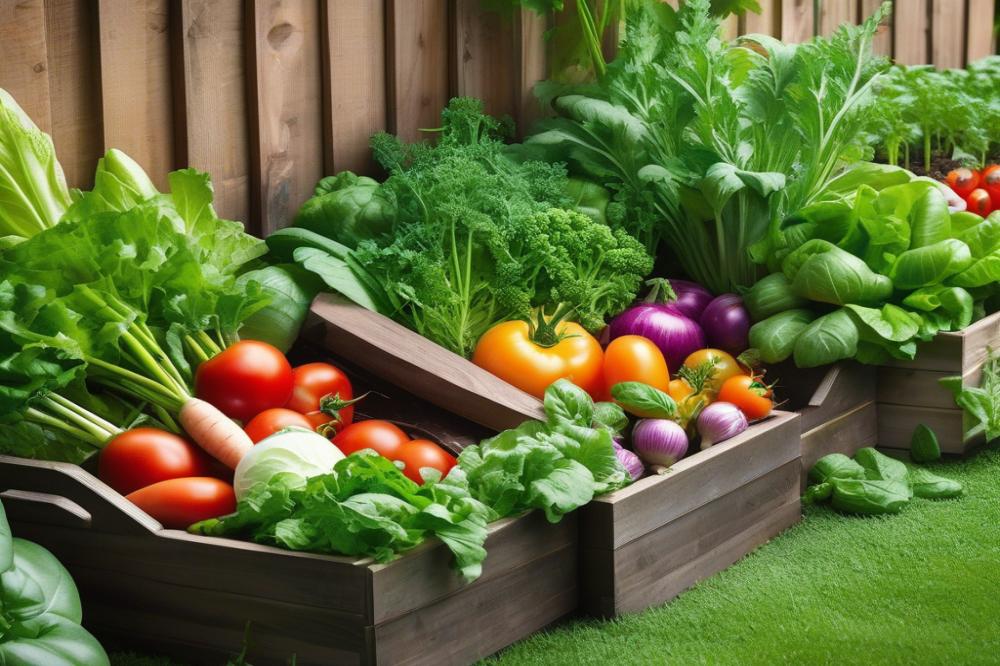Introduction
Many gardeners recognize the significance of using Epsom salt to enhance the vitality of their plants. This simple ingredient is not only affordable but also provides essential nutrients that can transform your garden. When it comes to growing healthy tomato plants, understanding the role of magnesium sulfate is crucial.
magnesium sulfate contains magnesium and sulfur, both of which contribute significantly to plant care. These components aid in nutrient absorption, ensuring that your plants can take in the essentials they need to thrive. For tomato growth specifically, magnesium plays a vital role in photosynthesis, helping plants convert sunlight into energy.
Incorporating this organic fertilizer into your gardening routine can improve soil health. Many gardeners find that a boost from this compound leads to lush foliage and vibrant, flavorful tomatoes. As a part of DIY gardening techniques, Epsom salt serves as a valuable plant booster.
Using Epsom salt not only enhances tomato plants but also supports overall vegetable gardening efforts. Many experienced gardeners recommend including this substance as a regular part of garden maintenance. By following these simple gardening tips, you can enjoy flourishing plants and maximize your vegetable harvest.
Understanding Epsom Salt


Epsom salt, known chemically as magnesium sulfate, is a mineral compound derived from natural sources. This simple compound consists of magnesium, sulfur, and oxygen. When applied to gardens, it acts as a beneficial supplement for various plants, particularly tomatoes. Farmers and home gardeners alike often seek methods to enhance plant care, and this substance stands out.
Magnesium plays a critical role in soil health and plant development. It aids in the formation of chlorophyll, which is vital for photosynthesis. When tomatoes receive adequate magnesium, they can convert sunlight into energy more effectively. This results in healthier plants and possibly more fruitful yields.
Furthermore, magnesium sulfate improves nutrient absorption within tomato plants. When roots have easy access to magnesium, they can take in other essential nutrients such as nitrogen and phosphorus more efficiently. In vegetable gardening, this might mean stronger stems and vibrant leaves, which contribute to robust fruit production.
DIY gardening enthusiasts find this organic fertilizer an excellent option for boosting tomato growth. It’s easy to incorporate Epsom salt into your regular gardening tips. Simply mix a tablespoon of the compound into the soil when planting or dissolve it in water and use it as a foliar spray. Such applications promote a healthy growing environment.
In summary, the right usage of magnesium sulfate can create a positive impact on your gardening outcomes. Tomato plants benefit greatly from its properties, leading to better overall health. When considering options for a plant booster, don’t overlook the asset that Epsom salt can be in your garden.
Benefits of Epsom Salt for Tomato Growth


Using magnesium sulfate brings several benefits to the growth of tomato plants. This compound plays an essential role in various plant functions. Because of its high magnesium content, it helps improve nutrient absorption. Tomato plants, in particular, thrive with this added mineral, which promotes leaf development and overall health.
Gardeners often look for ways to enhance soil health. Unlike traditional fertilizers, Epsom salt acts as an organic fertilizer. It provides magnesium without the harsh chemicals found in many store-bought options. This makes it a great choice for those engaged in vegetable gardening and DIY gardening methods.
As leaves flourish, fruit production increases significantly. Magnesium contributes to chlorophyll formation, which aids in photosynthesis. Healthy leaves absorb sunlight effectively, providing energy for growth. As a result, tomato plants can produce more flowers and fruits, leading to a better yield.
Comparing magnesium sulfate to standard fertilizers reveals distinct advantages. Conventional fertilizers may supply nutrients but often lack magnesium. Over time, this deficiency can stunt growth and reduce overall yield. By adding Epsom salt, a plant booster, gardeners support their tomatoes in reaching their full potential. This approach encourages robust growth without compromising soil structure.
Rather than focusing solely on synthetic options, many prefer organic methods for plant care. The use of Epsom salt aligns well with organic gardening principles. This strategy helps maintain soil ecosystems and promotes healthier plants. In addition, its affordability makes it accessible for novice and experienced gardeners alike.
How to Apply Epsom Salt in Your Garden


To effectively use magnesium sulfate for your tomato plants, consider the timing and method of application. Start with your growing season, applying it just as your seedlings begin to thrive. This is when they truly need enhanced nutrition to develop strong roots and healthy foliage.
Frequency matters too. You can treat your plants every four to six weeks during the growing period. This allows for consistent nutrient absorption and contributes to overall soil health.
Soil Amendment Method
One common method involves amending the soil. Mix about one to two tablespoons of the substance into the soil when planting your seedlings. Disperse it evenly around the root zone. This will help foster a rich environment as the plants start to grow and strengthen their root systems.
Foliar Spray Method
A foliar spray is another effective technique. Create a solution by dissolving one tablespoon of magnesium sulfate in a gallon of water. Spray this mixture directly onto the leaves. This method allows for quicker nutrient uptake through the foliage, making it a useful plant booster.
DIY Gardening Tips
Incorporating these tips into your routine can make a huge difference. For instance, combine Epsom salt with your compost. This mixture serves as an organic fertilizer rich in essential minerals. Additionally, using Epsom salt alongside other amendments can improve the overall health of the soil.
Always be mindful of how your tomato plants respond. Excess application can lead to nutrient imbalances. Monitor the leaves for signs of stress or unusual growth. Good plant care also includes understanding when to use this gardening staple and when to pull back.
Vegetable gardening can become more rewarding with just a little additional care. Keeping track of your application methods and their results will refine your practices over time. Different strategies may work better for different plants, so adjust as needed.
Best Practices for Tomato Care
Growing healthy tomato plants requires more than just sunlight and water. A proper approach to plant care can make a significant difference in their growth. First, choose a sunny location for your garden. Tomatoes thrive in warmth and need at least six hours of direct sunlight each day. This light not only aids in photosynthesis but also helps fruits develop their full flavor.
Soil health is crucial for tomato plants. Rich, well-draining soil supports root development and nutrient absorption. Incorporating organic fertilizer into your gardening routine can enhance soil fertility. It provides essential nutrients that assist in the overall growth of your plants. Adding magnesium sulfate creates an environment where plants can truly flourish. This compound aids in chlorophyll production and boosts overall plant health.
Watering is another vital aspect of plant care. The soil should remain consistently moist but not soggy. Watering deeply encourages roots to grow deeper and stronger. Regular monitoring of soil moisture will help you adjust your watering schedule as needed. Additionally, mulching around the plants can maintain soil temperature and reduce moisture loss.
Integrate gardening tips like crop rotation and companion planting for better results. Changing the location of your tomato plants each year prevents disease buildup in the soil. Planting marigolds nearby can deter pests naturally, reducing the need for chemical treatments. This holistic approach fosters a healthy ecosystem in your garden.
Regular pruning of tomato plants is also beneficial. Removing excess leaves allows better air circulation. Enhanced airflow helps prevent fungal diseases, which can be common in humid conditions. Moreover, supporting your plants with stakes or cages can prevent them from sprawling on the ground. This keeps the fruit off the soil and reduces the risk of rot.
When using a plant booster like Epsom salt, apply it sparingly. A tablespoon mixed into a gallon of water makes an effective foliar spray. This method allows for quick absorption. Apply during the growing season to maximize benefits. Timing is essential; do not overdo it, as too much can harm the plants.
Potential Drawbacks and Considerations
Using magnesium sulfate can be beneficial for tomato plants, but caution is needed. Overusing this substance may lead to issues that can harm your garden. Symptoms of magnesium toxicity include leaf burn, yellowing leaves, or even stunted growth. Identifying these signs early can prevent serious damage to your vegetable gardening efforts.
Another essential aspect of plant care is balance. Too much magnesium can disrupt the uptake of other nutrients, such as calcium and potassium. This nutrient imbalance may hinder the overall health of your plants. Healthy soil promotes better nutrient absorption, which is critical for vibrant growth.
Soil health should never be overlooked. Testing your soil before applying any organic fertilizer, including magnesium sulfate, is a smart move. A simple soil test provides a clearer picture of existing nutrient levels. Understanding what your garden needs is vital for effective DIY gardening.
Proper application is key to maximizing benefits. A few grains mixed into your soil might be enough, but more isn’t always better. Always own your gardening tips with awareness and care to prevent over-saturation.
Remember that every garden is unique, so adjustments may be necessary. Adapting your care routine based on your specific soil and environmental conditions can lead to thriving tomato plants.
Final Thoughts on Boosting Tomato Growth
Recapping the benefits of using magnesium sulfate reveals a clear advantage for tomato plants. This simple addition can promote healthier growth and encourage more vibrant tomatoes. Regular applications can lead to stronger stems and improved fruit quality. Furthermore, it helps in the absorption of essential nutrients, which can make a significant difference in overall plant vitality.
Integrating this mineral into your gardening routine is a great way to elevate plant care. Tomatoes thrive when given the right conditions, and this compound can play a key role in that equation. It’s an easy, affordable option that can yield big results. Overall, consider adding it to your schedule when caring for your plants.
Enhancing your gardening experience can be straightforward. Many gardeners have found success through the practice of using this product regularly. The vibrant plants that result are often rewarding and satisfying. Embracing this approach might not only benefit your tomatoes but also deepen your connection to gardening. So, embark on this journey, enjoy your tomato cultivation, and reap the rewards of your hard work.



